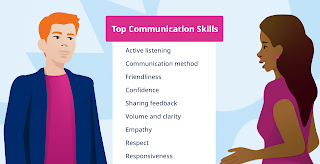Introduction
In today’s competitive tech world, mastering the software development life cycle isn't enough—soft skills have become key differentiators. Whether you're applying for a software development internship, working at a software development company, or transitioning into a software development engineer role, success often hinges on how well you communicate, collaborate, and adapt.
While technical ability gets your foot in the door, these non-code skills help developers thrive in agile software development environments, custom software development teams, and lean software development workflows.
1️⃣ Communication Skills
Whether you're building MVPs in software development or writing documentation for the Windows Software Development Kit, strong communication bridges the gap between developers, clients, and project managers.
💬 Tip: Practice writing simple explanations of software development methodologies and processes—perfect for app development clients who aren’t tech-savvy.
2️⃣ Time Management & Productivity
The software development process is packed with deadlines. Whether you’re in a sprint cycle or balancing multiple software development models, time management prevents burnout and missed milestones.
🧠 Tools to try:
Trello or Notion (great for tracking agile software development life cycles)
Pomodoro technique (improves focus on game software development tasks)
Calendar blocking (ideal for software development courses or freelance work)
3️⃣ Teamwork & Collaboration
Great software custom development doesn’t happen in isolation. From GitHub to stand-ups, developers must sync with teammates across borders and time zones.
🤝 Action Idea: Contribute to an open-source project or offer mentorship during a B.Voc software development class—you’ll build real-world empathy and feedback skills.
4️⃣ Problem-Solving Mindset
Whether debugging software for game development or identifying bottlenecks in the software development life cycle, strong problem-solving saves time and adds value.
💡 Growth Tip: Document your problem-solving wins in blog posts—it builds your portfolio for software development jobs and helps others, too.
5️⃣ Adaptability & Learning Agility
The tech landscape changes fast. Software development engineers must stay agile—exploring new frameworks, languages, and trends from custom app development to AI integration.
📚 Bonus: Follow platforms offering free software development courses and subscribe to newsletters like Hacker News or Dev.to for ongoing insights.
6️⃣ Leadership & Mentoring
Whether you're managing developers at a software development company or guiding interns through lean software development principles, leadership boosts trust and clarity.
👨🏫 Try This: Share your journey from coding basics to MVP in software development through articles or video walkthroughs—it also makes great affiliate content!
7️⃣ Emotional Intelligence & Feedback Handling
Handling pressure during complex deployments or code reviews is part of being a professional. Emotional intelligence helps when you're deep in agile software development or navigating cross-functional product discussions.
🧘 Tip: Use journaling or mindfulness apps to track your mindset—perfect for those in high-stakes software development engineer roles or game dev crunch cycles.
Conclusion
Technical skills build features, but soft skills build careers. Whether you’re just starting a software development internship or leading custom development teams, these qualities will elevate your presence, performance, and potential.
📌 Which soft skill are you working on next? Drop your thoughts below—and share this post with fellow devs on your team!
.png)
.jpg)












No comments:
Post a Comment